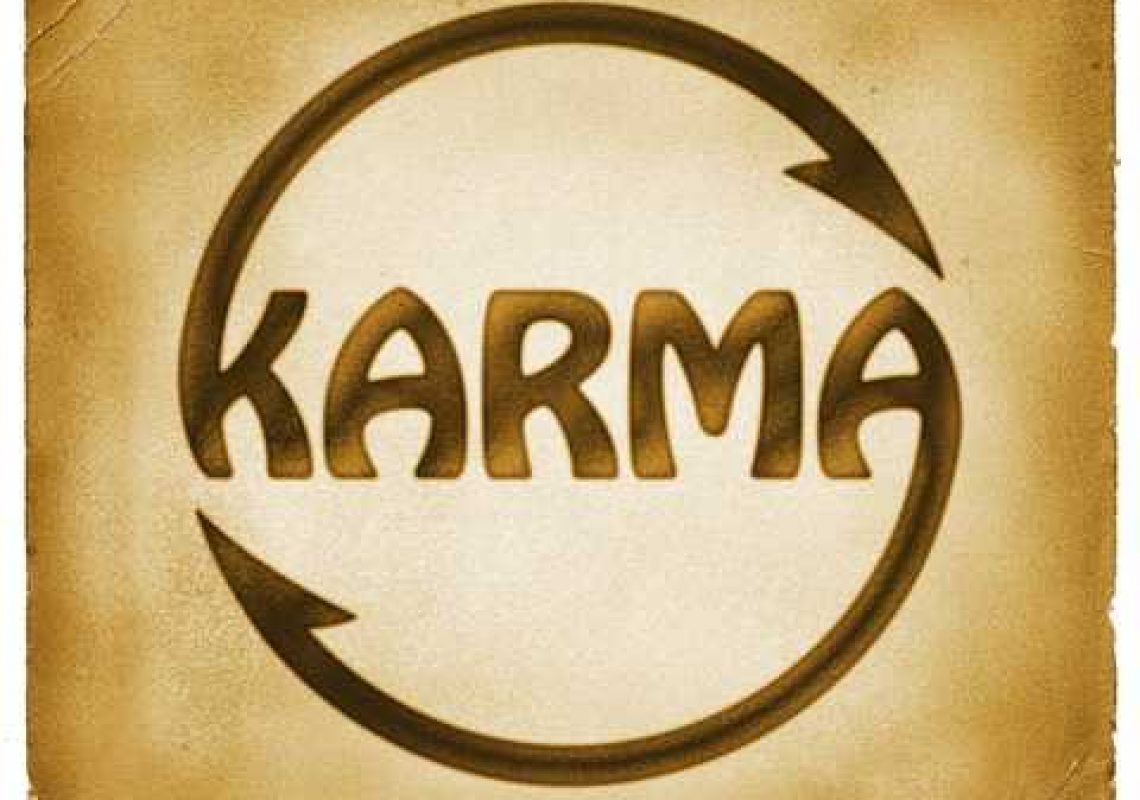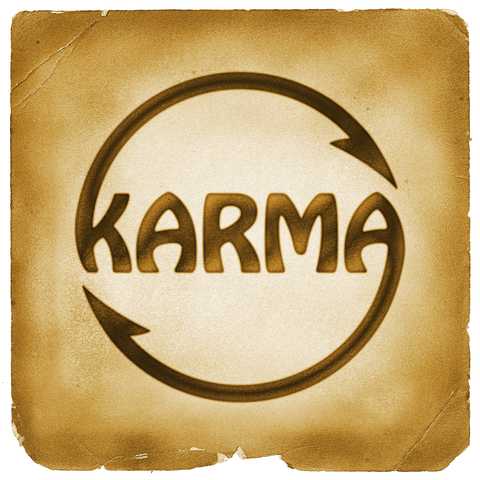Recently I wrote a blog titled “Karma or Consequence?” After I posted it, a friend contacted me stating that I, like many people, didn’t quite understand what karma really is. Since she is not only a trusted friend, but also has her Ph.D. in psychology, I listen when she tells me something. We had a great conversation, she sent me links to some informative articles, and I think I understand better what karma is, and isn’t.
In brief, our conversation was about how karma is a Hindu concept and it has to do with reincarnation. If we do well in this life, we can come back as a better being in our next life. It’s not as simplistic as “you reap what you sow.” People frequently use the term “karma” when they are looking for justice. It can make people feel better if they believe that justice will occur when people do bad things, that “karma” will catch up to them and they will pay for their bad deeds.
The articles she recommended follow. They are very good and I’m going to include the links so that you can read them yourself.
“What is Karma?”
Karma is a Sanskrit word that roughly translates into “action.” It features heavily in some Eastern religions, including Buddhism as well as Hinduism. It concerns cause and effect. Our actions, as well as our thoughts and words, will have an effect on our life. An important point is that karma is not fate or destiny, which means we have control because we control our actions. Another important point is that it is not just our actions that matter, but also the intentions behind those actions.
Please read the complete article at https://www.livescience.com/41462-what-is-karma.html.
“What is Karma and Why Should it Matter to Us?”
Intentions matter. In Buddhism, there is our “bare behavior” and our intention behind that behavior. Our intentions create our karma. For example, wielding a knife with the intent to perform life-saving surgery is vastly different from wielding a knife to kill someone. Our intentions plant behavioral seeds, which become habits, which become our character.
I recommend you read the complete article, as I’ve barely scratched the surface of the content, https://www.psychologytoday.com/us/blog/turning-straw-gold/201205/what-is-karma-and-why-should-it-matter-us.
“Karma Definition: Most People are Wrong about the Meaning.”
“The word “karma” means “action,” not “fate.” In Buddhism, karma is an energy created by willful action, through thoughts, words and deeds. We are all creating karma every minute, and the karma we create affects us every minute. It’s common to think of “my karma” as something you did in your last life that seals your fate in this life, but this is not Buddhist understanding. Karma is an action, not a result. The future is not set in stone. You can change the course of your life right now by changing your volitional (intentional) acts and self-destructive patterns.” (Barbara O’Brien of the buddhism.about.com blog.)
If you are interested in personal development, please read the full article. It explains what karma is (and isn’t) in very understandable terms. The above quote is a great summary, but the details are well worth reading. https://ideapod.com/heres-great-explanation-karma-really-means-can-improve-life/.
I hope you will take the time to read the articles. None of them are long and all contain great information. Even if you don’t believe in karma per se, the articles can help you make changes in your life for the better and can help you become the person you want to be.
If you like this blog, you will love my book series, 52 Weeks of Wisdom: A Woman’s Guide to Self-Empowerment. Click here for more information and to order.


